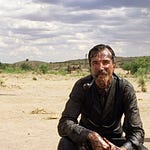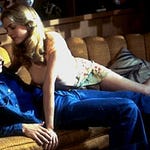Rob Henderson and Marc Andreessen join me to discuss the Deadwood: The Movie (2019), along with our thoughts about the series more generally. We converge on the idea that the main protagonists of the show, that is, Swearengen, Bullock, and Hearst, represent three eras of civilization, with each of the first two leading to the next one. Marc sees the Hearst character, who apparently has little in common with his real-life namesake, as the hero of this universe. My view leans more towards the idea that he should be the hero, but the show and the movie reflect the liberalism of their respective eras.
Hear why Marc calls Deadwood “the closest thing we have to modern Shakespeare.” Also, what he learned about the Gilded Age from taking a walk around Stanford campus.
By contrasting the politics of the movie and the show, we get a time capsule of the priorities of liberalism in the mid-2000s relative to a decade later. I present my theory about each of the Cars movies similarly being representative of a particular era in art and entertainment. It’s truly fascinating how the hivemind works, with individual artists and producers fully believing that they’re making original work while they all rely on the same motifs and moral themes of their contemporaries. Rob points out that just by watching the Deadwood series or the movie, you could guess the time around which each was made.

Another theme of our discussion is how Deadwood presents a less romantic version of reality than what we are used to seeing. Echoing one of my previous conversations with Rob, Marc is particularly struck by the use of mud. I point out that the real life story of Swearengen’s Gem Theater was much more brutal to the women than how things were portrayed. Moreover, characters still had their teeth, and besides the mud getting at the bottom of their clothes, they often looked otherwise impeccable. That being said, some of the medical scenes in the series were absolutely brutal, and if it’s true that we can only take so much reality, then Deadwood pushes us to near our limit.
Before this conversation, I did a good bit of reading on the real life characters behind the show, and I discuss what I found throughout the discussion. See the links for more information.
Note that throughout this conversation we refer to the movie as having come out in 2018. It was actually 2019. We regret the error.
Listen to the podcast, or watch the episode on YouTube.
Links
Me on the Cars movies
Jerry L. Bryant and Barbara Fifer, Deadwood’s Al Swearingen (sic): Manifest Evil in the Gem Theater
Matthew Bernstein, George Hearst: Silver King of the Gilded Age
Ron Soodatler, “Who Was the Real George Hearst?”
Legends of America, “Al Swearengen & the Notorious Gem Theater”
David K. Whitlock, “HBO’s Deadwood — The Facts and the Fiction.”
Me and Rob on Deadwood, Season 1 through Season 2, Episode 2
Me and Rob on Deadwood, Season 2
Me and Rob on Deadwood, Season 3












